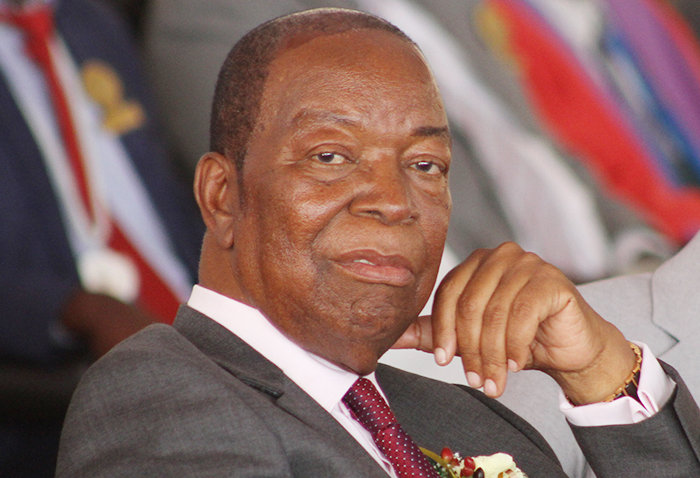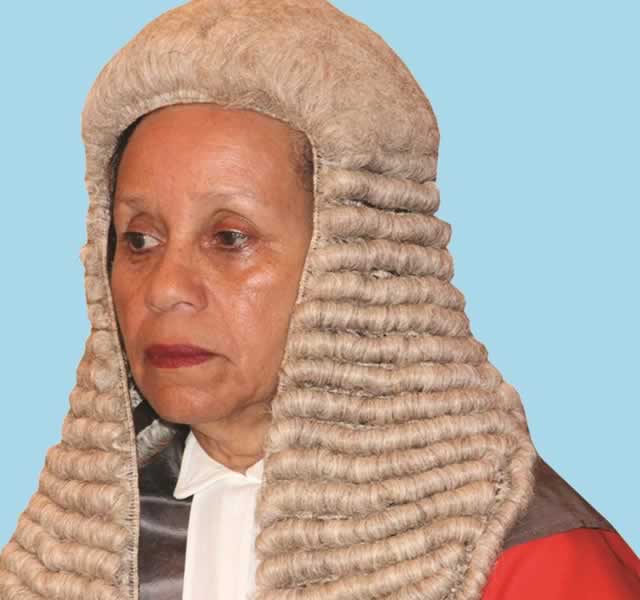Chidyausiku might have misfired: ED
Daniel Nemukuyu Senior Court Reporter—
RETIRED Chief Justice Godfrey Chidyausiku could have violated the Constitution of Zimbabwe by appointing Justice Vernanda Ziyambi as Acting Judge of the Constitutional and Supreme Court without her first taking oath of office, Vice President Emmerson Mnangagwa said yesterday. Justice Ziyambi retired from the bench in November last year at the age of 70, but she was reappointed to the bench in an acting capacity for a year.
The first case she sat for as an Acting Judge was an appeal by the Judicial Service Commission (JSC) against a High Court decision stopping public interviews to select Retired Chief Justice Chidyausiku’s successor.
The Supreme Court bench comprising Justices Ziyambi, Bharat Patel and Ben Hlatshwayo allowed the appeal and quashed the decision by Justice Charles Hungwe.
After the granting of the appeal, University of Zimbabwe law student Mr Romeo Zibani, who emerged the loser in the court case, approached the Constitutional Court challenging the constitutionality of Justice Ziyambi’s appointment as an Acting Judge when she had reached 70 years.
He is also challenging the constitutionality of the bench that threw out his case.
VP Mnangagwa, who was cited as second respondent, did not comment on Mr Zibani’s grounds of contest, but raised a fresh issue of failure to take oath of office.
“I do not take issue with the averments made by the applicant in paragraphs 1 to 8 of his founding affidavit. However, I believe third respondent did not comply with the peremptory provisions of Section 185 (2) of the Constitution.
“The peremptory provisions of Section 185 (2) of the Constitution require that a judge takes the oath of office upon appointment.
“My belief is premised on the fact that the letter of appointment of the fourth respondent, which I also received, makes no mention of that issue,” said VP Mnangagwa.
Meanwhile, Rtd Chief Justice Chidyausiku has opposed the application saying he acted in terms of the law.
“For the avoidance of doubt, to the extent that the correct legal position is at variance with the averments made by the applicant in casu, such averments are disputed and or denied as if traversed seriatim,” he said.
Rtd Justice Ziyambi said her appointment as Acting Judge was lawful.
“The averments herein are denied. The Constitution and law clearly provides for my appointment,” said Justice Ziyambi.
Mr Zibani is challenging the constitutionality of a Supreme Court bench that validated the JSC process of conducting public interviews to select the country’s new Chief Justice.
The application was filed by Venturas and Samukange Legal Practitioners.
President Mugabe, Vice President Mnangagwa, Rtd CJ Chidyausiku and Justice Ziyambi were listed as respondents in the fresh application.
Mr Zibani argued that the Constitution states that only people below 70 years can be appointed judges.
Since Justice Ziyambi retired after turning 70, her recalling to sit as the third judge in the JSC appeal, Mr Zibani argued, was unconstitutional.
Mr Zibani stated in his affidavit that the Chief Justice acted unlawfully in appointing Justice Ziyambi.
Mr Zibani argued that the court was not properly constituted because only two qualified judges, Justices Ben Hlatshwayo and Bharat Patel, sat for the matter when the Supreme Court requires at least three judges.
Chief Justice Chidyausiku, through a letter dated February 6 2017, appointed Justice Ziyambi as Acting Judge of both the Supreme and Constitutional Court for a year.
“This minute serves to advise you that I hereby appoint you an Acting Judge of the Constitutional Court of Zimbabwe with effect from 06 February 2017 to 05 February 2018.
“The appointment is made in terms of Section 166 (2) of the Constitution of Zimbabwe.
“This minute also serves to advise you that I hereby appoint you an Acting judge of the Supreme Court of Zimbabwe with effect from February 6 2017 to February 5 2018.
“The appointment is made in terms of Section 168 0f the Constitution of Zimbabwe,” reads the letter.
Section 166(2) relied upon by the Chief Justice in the appointment of Justice Ziyambi to the Constitutional Court reads:
“If the services of an acting judge are required on the Constitutional Court for a limited period, the Chief Justice may appoint a judge or a former judge to act as a judge of the Constitutional Court for that period…”
Section 168 (2) used in the appointment of Justice Ziyambi to the Supreme Court reads:
“If the services of an additional judge are required on the Supreme Court for a limited period, the Chief Justice may appoint a judge of the High Court, or a former judge to act as a judge of the Supreme Court for that period.”













Comments